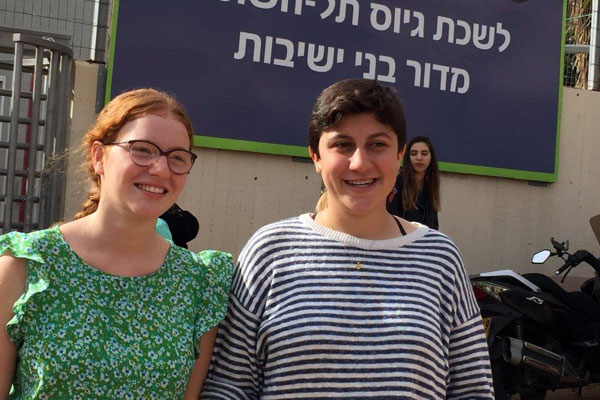The two young women already spent seven days in prison for refusing to take part in the occupation.

An IDF tribunal sentenced two Israeli conscientious objectors, Tamar Alon and Tamar Ze’evi, to 10 days in military prison on Monday for refusing to serve in the Israeli occupation.
Two weeks ago, the young women declared their conscientious objection at the Israeli army’s Tel Hashomer induction base, saying that they refuse to take part in the oppression of the Palestinian people. They were sentenced to seven days in military prison at the time.
At the end of their current prison stint, the two will be released for the weekend, after which they will be required to once again present themselves at the induction base.
They will then likely declare their refusal once again, and be handed a third prison sentence, a cycle that can repeat itself for months on end.
Israeli law allows for conscientious objection, but in practice it is only ever accepted on grounds of pacifism, not for political reasons, a category in which the IDF includes opposing the occupation.
Tamar Ze’evi and Tamar Alon are both asking to perform an alternative civilian national service instead of military service.
“From a young age I met my parents’ Palestinian friends — I met people who are supposed to be my enemies who smiled at me, played with me, and spoke with me,” wrote Tamar Alon in a declaration ahead of her refusal.
“I can’t accept the claim that the oppression of another people, the denial of basic human rights, and racism and hate are necessary for the existence of State of Israel,” she continued.
Tamar Ze’evi, in her refusal statement, wrote: “On the one hand, it’s my legal and societal obligation, which I always intended and expected to fulfill — the right to safeguard the security of my home and the people most dear to me.”
“But on the other hand,” she continued, “is a childhood in the shadow of terror attacks and wars real security? What about the security of those human beings on the other side of the walls? Am I, as a daughter of the people controlling the another people, responsible for their well-being? Where is the line where we stop collaborating, have we already crossed it?”
“I am not willing to lend a hand to a situation in which two peoples are living in fear of each other, and are paying such a heavy price for dozens of years,” Ze’evi added. “Out of love for this land and the human beings who live in it, I want to believe, and I do believe that there is a different path and that we can effect change.”
Earlier this year another conscientious objector, Tair Kaminer, spent five months in military prison, the longest sentence ever for a female refuser.
Dozens of Israeli jurists ultimately petitioned the army to release Kaminer, argying that there is no reason to imprison someone who believes military service goes against his or her core moral beliefs, and that Kaminer’s refusal to enlist is an expression of “freedom of consciousness.”
A version of this article also appears in Hebrew on Local Call.

